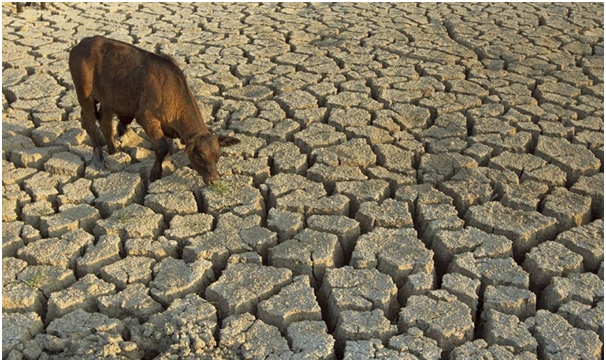Water Wars! Section 144 To Prevent Violence in Dry, Thirsty Latur

MUMBAI: Prohibitory Orders to Prevent Water Riots? Not in a remote village away from all maps of development but in Maharashtra’s town Latur with a population of over 500,000 where the state government has directed the administration to impose Section 144 to prevent untoward incidents, an euphemism for possible wars over an acute shortage of water.
The warning bells have been ringing since the crippling drought in Latur in 2014 but have been ignored by the Shiv Sena-BJP government, more preoccupied with ‘nationalism’ and related ‘slogans’. Latur, according to experts here, has a daily water requirement of 20 million litres per day but since last year has been receiving water only once a month. The residents and even the administration has raised the issue with the state government but the lack of response has now led to a crisis, with Section 144 being imposed in the town to prevent people warring over water. The prohibitory orders are in place around the six water treatment plants for fear of a large scale uprising as the residents struggle for water. Tankers have been deployed but clearly are insufficient to deal with the demand that is heightening tension within the town.
It is almost a war like situation town with the police deployed in full strength, particularly at night, to ensure that there is no water theft. Of course, this is easier said than done. Boats, according to the district administration, have also been deployed around the reservoirs to keep what officials claim is a “close vigil.” The hand pumps have largely gone dry, municipal water is supplied only once a month, and the tankers can barely meet the needs of the people. Section 144 of the Criminal Procedure Code that prevents more than five persons from gathering at a spot is, according to the administration, being strictly enforced and will remain in place till April 1 for now. The Manjara Dam is completely without water, with tankers trying to transport water from the reservoirs in Arvi, Malkonji and Dongargaon.
Latur has been a prime case of government apathy and mismanagement. There has not been a word from the central leaders about the major crisis being faced by the residents despite sufficient warnings over the past two years by environmentalists and eco-experts. The area has been without rainfall for two seasons now, and quick action by the government, experts say, could have helped prevent the situation from reaching this crisis point. There is no river in the vicinity and because of successive drought years the groundwater table was reduced to half, and now is far lower with borewells also drying up.
In 2014, the farmers were encouraged by the authorities to plant sugar cane that drinks water, literally. This went against the 1972 drought when a more alert and responsive government discouraged the residents from planting this water guzzling cash crop. Not only did this further deplete ground water levels, but has itself been wasted adding to growing agrarian distress.
In September 2015 some reports, buried inside the main newspapers, did speak of water wars in the Osmanabad-Beed border with officials fighting for a share of the miniscule quantity of water left at the time in the Manjra dam. A news report stated, “In two separate incidents over the last month, civic officials of Kalam and Shiradhon, both in Osmanabad district, have tried to stop the water supply to Latur. Their contention - the dam is in their district and hence they should get the lion's share of water. Latur is the biggest town of the eight that Manjra caters to. And with a population of over 5 lakh, other towns perceive it as a strain on the limited water supply.” At that time the district authorities directed the police to ensure the safety of the officials from each other.
Despite this, no attention has been paid to the crisis since. Long term measures of managing the five river basins have been completely ignored with the residents now, with the knee jerk approach by the state government to what is basically a three year water crisis now leading to the threat of water wars in Latur. The residents have for long tried to warn the authorities, and seek help but with little response. In November last year for instance a group of residents took a bath at the steps of the municipal corporation headquarters, in a peaceful bid, to get the authorities to deal with the looming crisis. Even pipelines for transporting water have not been laid over these years of drought, with only plans being announced.
Prohibitory orders to prevent violence over water is unprecedented even in this drought hit area, and reflect the complete failure of the state government and the ruling parties to address the crisis as it grew in intensity over the last several months.



